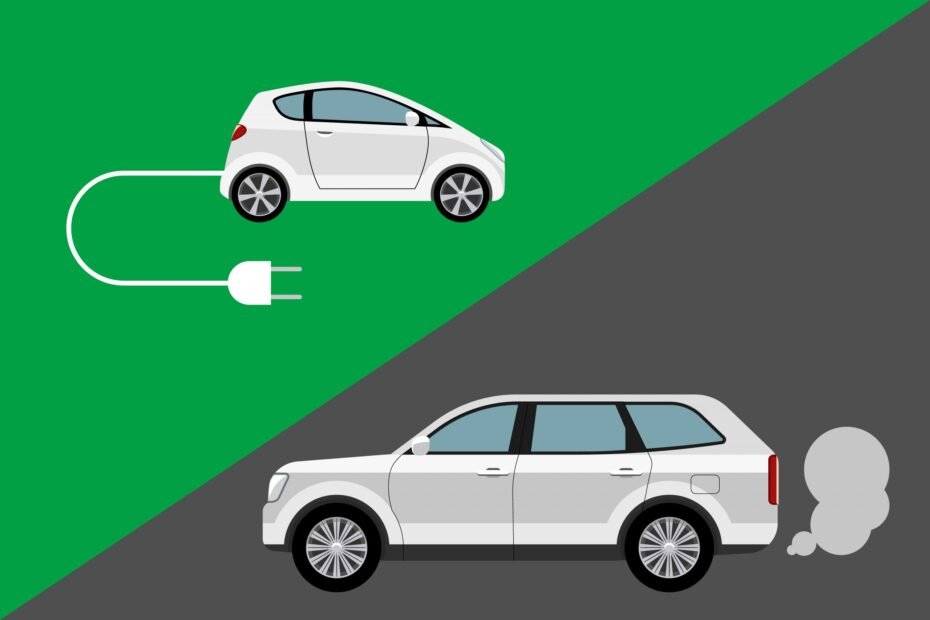Electric Cars vs. Internal Combustion Engines: Pros and Cons – Do you want to know the pros and cons of electric cars and internal combustion engines? Are you having a challenge choosing between electric cars and internal combustion engine vehicles? This article is that missing piece you have been looking for.
We shall be discussing the two types of cars above individually and discussing their relative strengths and weaknesses to enable you to make the right choices. The respective discussions would give you a different perspective on the two types of vehicles.
Electric cars & Internal combustion engines – Introduction
As the automotive industry undergoes a revolutionary transformation, the debate between electric cars and traditional internal combustion engine vehicles intensifies. Each technology comes with its own set of advantages and disadvantages, shaping the future of transportation.
The respective pros and cons of electric cars and internal combustion engine vehicles help not just to shape the perspective of customers, but to offer a trend of patronage that – just as it is rightly stated above – would shape the future of transportation.
We shall go on now to explore the pros and cons of electric cars and Internal combustion engines respectively, ultimately aiding customers in making the right decision of what type of car they should go for given the heightened evolution and development going on in the automobile industry.
Electric cars

To understand the pros and cons of electric cars, you must have a grasp of what the car is all about. An electric traction motor powers an electric car, also known as an electric vehicle, which is a passenger car that runs only on energy from its onboard batteries.
Electric cars offer greater energy conversion efficiency, are more responsive, quieter, produce no exhaust emissions, and have lower overall vehicle emissions when compared to traditional internal combustion engine vehicles.
The pros and cons of the vehicle include:
Pros:
- It is environmentally friendly. Given the high demand for climate change, a very essential advantage of the electric car is the fact that with zero tailpipe emissions, electric cars contribute to reducing air pollution and greenhouse gas emissions, making them a cleaner and greener option.
- Government-backed. Many governments worldwide offer incentives to encourage the adoption of electric vehicles. These incentives can include tax credits, rebates, and access to carpool lanes, making electric cars more attractive from a financial perspective.
- Cheaper to maintain. Another essential pro of electric cars in the list of pros and cons of electric cars and internal combustion engines is that it is cheaper to maintain. With fewer moving parts, it requires less maintenance, and the cost of electricity is often lower than that of gasoline. Over time, this can result in significant savings for the owner.
Cons:
- Expensive to purchase. Unlike internal combustion engine vehicles, electric cars are expensive to purchase, given their overwhelming advantages. Although this cost is decreasing as technology advances, it can still be a barrier for some consumers, even with long-term operating cost savings.
- Charging Period. Electric cars rely on being charged before you can drive them. However, the time required to charge an electric vehicle is still longer than refuelling a traditional car. Although fast-charging stations are becoming more common, widespread adoption is needed for electric cars to compete more effectively.
- Limited Range and Charging Infrastructure. Another essential con of electric cars in the list of pros and cons of electric cars and internal combustion engines is the lack of adequate range and charging structures for electric cars. Range anxiety remains a concern for many potential electric car buyers. While advancements are being made, electric vehicles still have a more limited range compared to traditional vehicles, and the availability of charging infrastructure varies by region.
Internal Combustion Engines

An internal combustion engine, often known as an ICE or IC engine, is a type of heat engine in which fuel is burned in a combustion chamber that is a crucial component of the working fluid flow circuit with the help of an oxidant, typically air.
This is the typical type of engine widely used by car manufacturers thus making it a more popular type of car among other types or varieties out there. It has its unique pros and cons which distinguishes it from electric cars and thus, will be discussed below.
Pros:
- Established Infrastructure. A very important pro of internal combustion engines in the list of pros and cons of electric cars and internal combustion engines is the availability of filing or fuel stations for both gasoline and diesel vehicles. This availability makes it more desirable to most people than electric cars.
- Cheaper to purchase. The vehicles using this type of engine are cheaper to purchase owing to the proliferation of various choices that come in various shapes, sizes and models. This availability makes the purchase of cars easier and more affordable.
- Quick refuelling. Unlike electric cars, vehicles using this type of engine are easier and faster to refuel. Filling up a gas tank is a quick process, taking only a few minutes.
Cons:
- Environmental Impact. One persisting con of internal combustion engines in the list of pros and cons of electric cars and internal combustion engines is the high demand for its discontinuation owing to its negative impact on the environment. Internal combustion engine vehicles contribute significantly to air pollution and carbon emissions
- Questionable future over dependency on fossil fuel. Internal combustion engine vehicles are dependent on fossil fuels, which are finite resources. As the world shifts toward renewable energy sources, the long-term sustainability of traditional vehicles is increasingly questioned.
- Expensive to maintain. The cost of maintaining an internal combustion engine vehicle is really high due to the complexity of internal combustion engines and the associated components.
Read Also – Top Driverless Car Companies 2022
Thank you for going through this article on electric cars vs. Internal Combustion Engines: Pros and Cons, we hope you found it interesting and educational. For more information, kindly leave a comment in the Reply section and we will get back to you as fast as practicable.

Pingback: 5 Reasons Why You Should Choose a Hybrid Vehicle Today